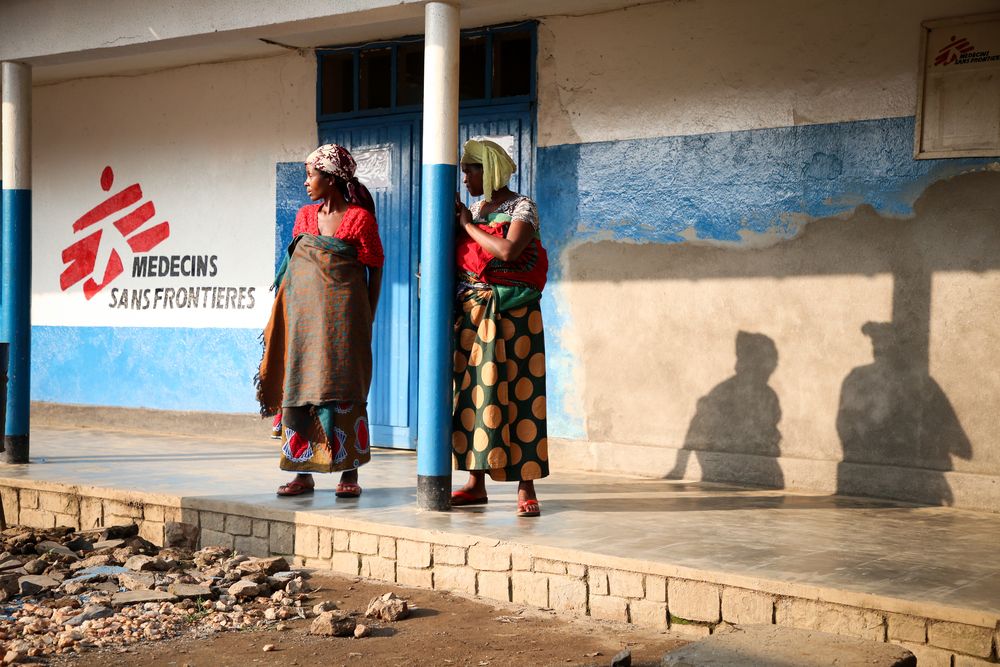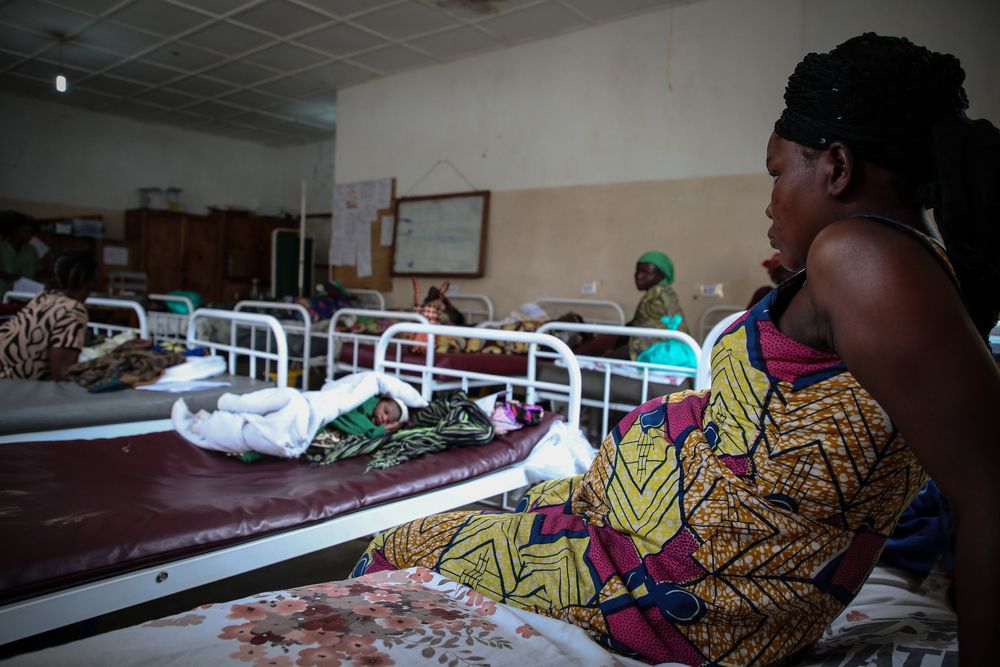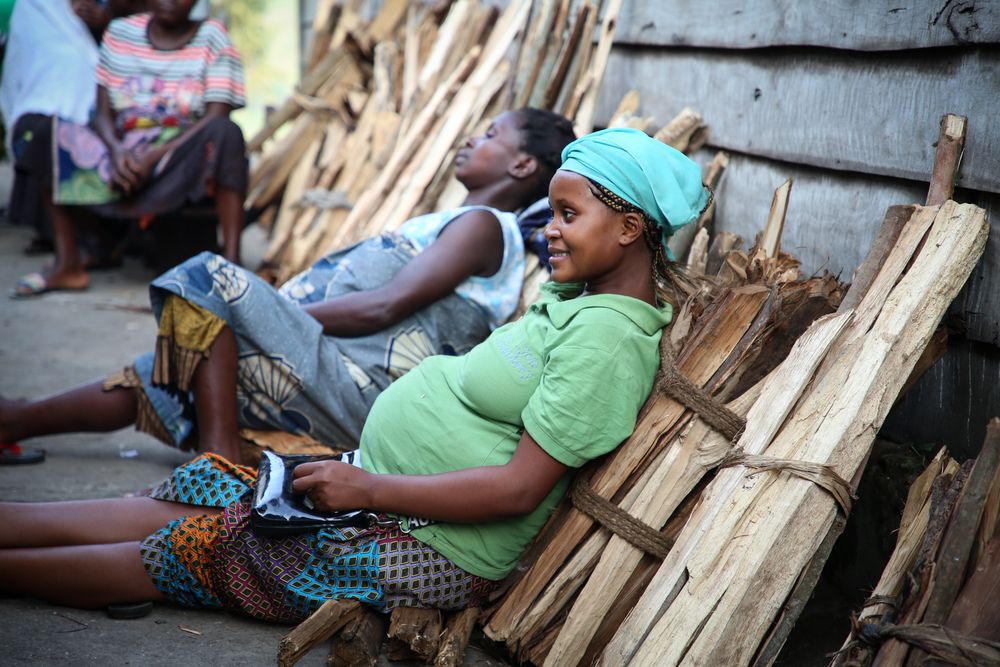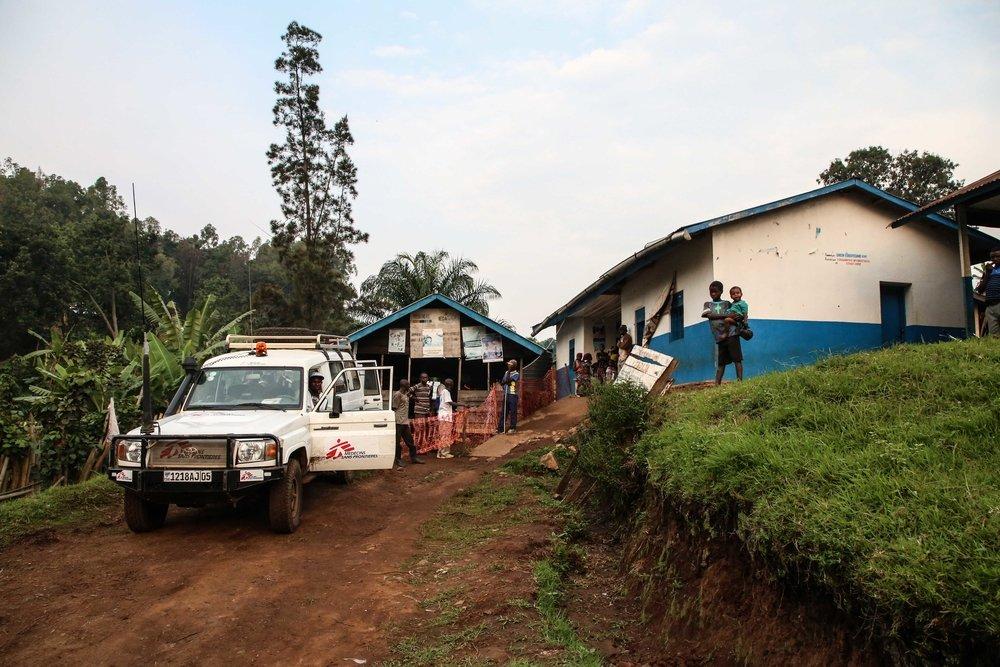At Walikale hospital in the Democratic Republic of Congo, midwife Claire Harper and her team need to make some quick decisions to save a tiny life.
"After all the hard work and adrenaline of labour, at that moment, a new life enters the world. It is the best experience that we get to share with families."

Trust and translation
"A language barrier creates a huge distance in that moment, which is why at Doctors Without Borders (MSF) direct patient care is provided primarily by local staff.
I am a native English speaker, but here in North Kivu in the Democratic Republic of Congo (DRC), French is the language of professional life while most people speak Swahili in their homes.
So, when I consult on patients, I have to ask one of my colleagues to translate my American-accented French into Swahili and hope the message gets across.
I have to trust my colleagues to communicate clearly with patients on my behalf, in order to ensure that patients understand their condition and care plans and that they can have informed consent at every step of the way.
This is especially critical during obstetric emergencies. Luckily, during an emergency last Monday everything turned out well".
Breech birth
"I arrived at our labour and delivery ward in the morning as usual. The national health service, or Bureau Central du Zone, recently hired some much-needed new midwives for our maternity service.
When I arrive, two of the new recruits – who haven’t yet finished their orientation at the hospital – are working alongside a third midwife who is substituting for the day.
I ask them to tell me about the patients there, and they quickly tell me that they’re in the process of admitting a woman who is fully dilated with a breech birth.
This means that the baby is arriving “bottom first”, creating a risk of complications.
At my practice in the USA, they would have been preparing the patient for the operating room. However, a complete breech birth does not indicate that a caesarean section is needed here. Especially since this woman has a history of uncomplicated vaginal deliveries".

The first baby?
"Given the staffing situation on the unit, I decide that I’d like to manage the delivery and everyone, including the mother, quickly agrees. We discuss the steps for delivering a baby in the breech position and ensure that we have everything we need in place for neonatal resuscitation.
We make the doctor aware of what is going on. He comes to the delivery room to introduce himself to the patient and check-in with the team. I evaluate the mother’s abdomen and it crosses my mind that there could be two babies in there… but I don’t dwell on that idea because the first baby is coming!"
“And my stomach drops…”
"A little slip of a baby girl is born breach without any complications. But, sure enough, there’s a twin behind her still waiting to be born. I perform an exam to establish the situation for the second baby and my stomach drops. The umbilical cord is coming before the head.
When the head descends into the pelvis, it will compress the umbilical cord and cut off the baby’s blood supply. This is an emergency called a “cord prolapse” and is an indication that a caesarean section needs to be performed as quickly as possible.
I leave my hand in place, keeping the head from putting pressure on the cord and explain to the mother and the nurses what I have felt. That she needs a caesarean section. I direct my team to get the doctor.
Then I remember that the delivery bed doesn’t have wheels. That’s going to be a problem.
In my training, I was taught that if you discover a prolapsed cord you should stay in the bed with the mum and continue pressing the baby’s head away from the cord as they roll her to the operating room. I repeat, ROLL her to the operating room. That doesn’t work when she has to walk there.

It’s a short walk, but it could still be the difference between maintaining the baby’s blood supply or not. Unfortunately, there’s not an alternative.
Now that the doctor has arrived and we’re all set up, with the help of my wonderful midwife translators I explain to the mum that when I remove my hand she needs to move as quickly as she can to the operating table.
She and the nurses do great work and she’s there in no time. I quickly replace my hand and I can still feel the pulse through the umbilical cord".
Another day
"They start cleaning the mother’s abdomen and a few minutes later, thank goodness, I hear a cry. A beautiful little boy joins his sister in the warmer while the doctor finishes the surgery. I am overjoyed and so energised.
There will be a lot to process with the mother over the coming days, but for now, she and her babies are healthy. We continue on to another day."
Read about MSF's activities in the Democratic Republic of Congo
